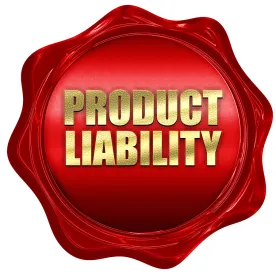While liability for PFAS—Per- and Polyfluoroalkyl Substances, also known as “forever chemicals”—may be an emerging issue, the availability of insurance coverage for these and similar liability claims is not. “Commercial general liability,” or CGL, insurance was specifically designed to cover claims made by a company’s customers or customers of customers for resulting bodily injury and property damage. PFAS claims fit this bill.
Though insurance companies have attempted to deflect from this intentionally broad coverage, CGL exclusions traditionally have been narrow. Even “pollution exclusions,” which have been raised by insurers facing PFAS claims, have limited scope. PFAS are products; and, thus, when drafting pollution exclusions, the insurance industry represented to regulators that they should apply only when (1) insurers can prove the policyholder expected or intended the alleged injuries and (2) only to true “industrial” pollution.
At a minimum, CGL policies should cover the cost of defending PFAS claims, given that defense cost coverage is triggered when there is merely a potential for coverage. But there may also be coverage for PFAS claims under other kinds of insurance in a company’s insurance program (like pollution legal liability policies) and policies protecting the company as an additional insured; if liability rises to executive-level decision-making, management liability and D&O policies may also be implicated.
PFAS Are, and Are Part of, Products
PFAS are products—that is, they are specifically-designed and manufactured to be used in many kinds of consumer and industrial products. They are neither simple wastes, nor byproducts. Whether sold in chemical form or incorporated into other products as component parts, PFAS are products like any other.
PFAS have been around since the 1940s. They are integral across myriad product lines because they resist heat, oil and moisture. For instance, PFAS made possible timesaving and life-saving innovations like nonstick cookware, stain-repellant clothing and firefighting tools. Today, PFAS are integral to products ranging from personal care supplies to fertilizer to electronics.
But as modern science changed our understanding of the risks of tobacco and a glass of red wine per night, so too have we learned that PFAS’s benefits are not without risks. PFAS has been linked to increased risks of cancer, developmental delays and reproductive irregularities. Previously thought to be stable and safe, recent studies suggest that PFAS may shed and migrate into food, air, soil and water; one study found that more than 200 million Americans drink tap water containing PFAS.
PFAS Claims and Litigation Present the Potential for Huge Liabilities and Defense Costs
PFAS-related claims and lawsuits have exploded, with plaintiffs alleging hundreds of millions and even billions of dollars in damages. The spectrum of target-defendants is broad. For example, a lawsuit filed recently by the State of Washington names twenty manufacturers as defendants. As a recent Bloomberg article noted, “[i]f PFAS went into a company’s finished product, odds are it’s being sued.” Consistent with the extended period during which PFAS products were made, sold and used, and what we now know to be the lasting character of PFAS itself, the scope and potential impact of these lawsuits are tremendous. Even government agencies have initiated investigations. Defense costs for all of these liabilities will be significant, often eclipsing any ultimate liability exposure. As one federal judge recently observed, “[i]t does not take a genius to figure out that if certain motions don’t go their way, the defendants are in an existential threat to their survival.”
Years, or Even Decades, of CGL Insurance May Apply
CGL and excess liability insurance are a staple of most risk management programs. As “occurrence” based policies, they continue to afford value long after the policy has expired, so long as the alleged bodily injury or property damage happened during the effective policy period. Even more broadly, CGL policies entitle the policyholder to a defense when only a single allegation against it raises a potential for coverage. And unlike the obligation to pay for settlements or judgments, the duty to defend typically is not subject to any aggregate limits.
Yes, CGL Coverage Should Apply to PFAS Claims
Policyholders should stand ready to question any denial of coverage, especially for claims involving PFAS. Because pollution exclusions were first approved by regulators for use in the early 1970s, older policies may not contain a pollution exclusion at all. Other policies may include only limited pollution exclusions while other exclusions are unlikely to apply on their face. Likewise, older policies may be equally applicable to claims alleging long periods of exposure. As shown by landmark coverage cases across the country, mostly recently in 2021 by the Montana Supreme Court, if bodily injury or property damage occurs over a period of time, all policies during that period will be triggered. Under this “continuous trigger,” many years or even decades’ of coverage may be available.
Conclusion
Whether companies can obtain coverage for PFAS claims may depend on the type of pollution exclusion in their policies, the facts alleged and the strength of counsel’s arguments. Successful businesses may obtain coverage for both defense costs (attorneys’ fees) and indemnity (judgments, settlements). With the extreme risks caused by PFAS lawsuits, companies should track down any “lost” policies; consider all other potentially available lines of coverage, including coverage that may be available from vendors, suppliers and other third parties (a/k/a “other people’s insurance”); and give notice to all potentially applicable insurance policies. Even companies that ultimately escape liability for PFAS claims may face potentially crippling defense costs. CGL insurance was intended to apply to such products claims and policyholders should therefor refuse to take no for an answer.






 />i
/>i


